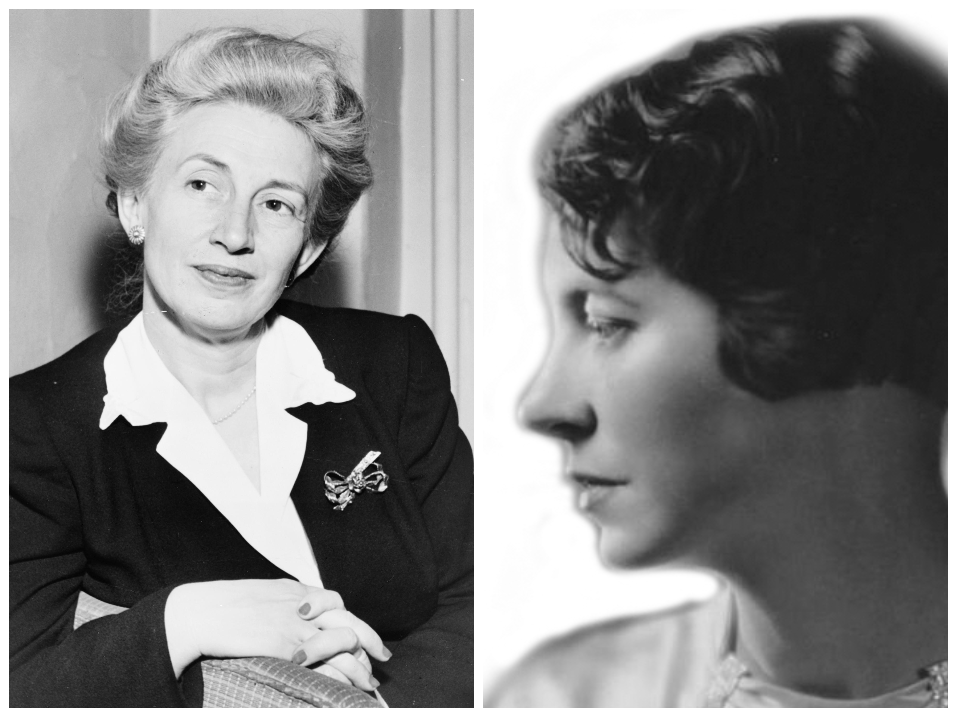“She stood at the gate, waiting; behind her the swamp, in front of her Colored Town, beyond it all, Maxwell.”
So begins Lillian Smith’s groundbreaking 1944 novel Strange Fruit. Its story focuses on Nonnie Smith and Tracy Deen, a couple in tiny Maxwell, Ga., who have fallen deeply in love but cannot possibly be together. Nonnie, we know by the end of the first page, is college-educated and highly respected, but she is a black woman in rural Georgia (Smith erred on the side of the colloquial slur), and Tracy Deen is a white man.
Indeed, Strange Fruit was the first celebrated novel that portrayed a sympathetic interracial romance. Released during the Second World War — Tracy is not only white but also a veteran — it was met with a great deal of controversy, which led to roaring sales but also to the book being banned in a number of locations.
Its banned-book status is perhaps part of what has earned Smith a place in this year’s Southern Women Authors: Writing America Between the Wars series, set to take place on 10 evenings between September and December, starting Wednesday, Sept. 12, at the West Asheville Library. The other authors on the docket are Caroline Miller (Lamb in His Bosom), Mildred Haun (The Hawk’s Done Gone) and Elizabeth Madox Roberts (The Time of Man).
As for Strange Fruit, it would be 1967 before anti-miscegenation laws were tossed with the Loving v. Virginia Supreme Court decision, making Lillian Smith remarkably ahead of her time and also keenly aware of what stories in American culture most needed to be told.
Jim Stokely, head of the Wilma Dykeman Legacy and organizer of the Southern Women Authors series, believes part of the injustice of Smith’s name being lost to history has to do with her having churned up a few enemies.
“One of Lillian Smith’s enemies was Ralph McGill, who’s generally seen as a great liberal journalist,” he explains, noting that McGill was among the many public figures who were “dragged into [being] progressive. They were not all bad, but they went from the gradualist stance, which was basically a dressed-up segregationist stance — what’s the difference between ‘Segregation now, segregation forever’ and ‘I believe in integration, we just can’t go too fast’? You’ll never go fast unless you’re going to push for it. Gradualist means you’re not going to push for it. That was the whole deal. They were in that camp.
“McGill was also, early on, for lynching and everything else,” he adds. “Smith had really let him have it early on, and just … probably called him out. Pushed him. He probably, out of shame as well as indignation, said, ‘To hell with her.’”
Smith wasn’t the only one who was pushed aside by male critics and others in the position of championing great women authors of that era.
A decade earlier, the year 1934 saw the publication of some highly celebrated works of fiction. F. Scott Fitzgerald published what was arguably the finest work of his career with Tender Is the Night. Fellow bearer of testosterone Henry Miller published Tropic of Cancer. But the Pulitzer Prize went to Caroline Miller for her portrayal of private matters — and female empowerment — in the rural antebellum South, via her stunning debut, Lamb in His Bosom.
You would be forgiven for wondering who Caroline Miller was.
Born in 1903 in Waycross, Ga., Miller wrote prolifically and published on occasion, yet Lamb in His Bosom was the only work for which she was celebrated in her lifetime. It earned her such success, in fact, that her marriage could not survive the attention. She eventually remarried and moved to Waynesville, where she wrote a number of other manuscripts and died in 1992.
This fall, her life and work will be given renewed interest when series attendees are treated to a lecture by Dr. Emily Powers Wright, followed by a book club discussion the following week.
Indeed, the series will feature lectures, documentary films, book club-style discussions and a “text-based musical performance” — all to celebrate and explore the work of these remarkable authors.
Stokely notes part of his motivation is based on the fact that his mother, Wilma Dykeman, “swam in gender discrimination” during her career, so he wanted to dedicate an event to other authors whose names — and perhaps also their work — have been forgotten.
Last year’s inaugural series focused on works by Zora Neale Hurston, Marjorie Kinnan Rawlings, Ellen Glasgow, Julia Peterkin and Olive Tilford Dargan, and each week saw attendance grow. Stokely is hoping for the same this year. He’s also hoping the series will encourage people not only to think more about these authors but also to read their books. To that end, used copies of each of the texts will be available for sale during the lectures, so folks can attend the lecture, go home and read the book, then return a few days later for discussion.
“My mother used to say there’s no greater compliment you can give to a writer than to read what they wrote,” Stokely says, adding that this series is “all about correcting the imbalance.”
WHAT: Southern Women Authors Writing America Between the Wars
WHERE: West Asheville Library, 942 Haywood Road
WHEN: Wednesday, Sept. 12-Wednesday, Dec. 19, 7 p.m. wilmadykemanlegacy.org






Before you comment
The comments section is here to provide a platform for civil dialogue on the issues we face together as a local community. Xpress is committed to offering this platform for all voices, but when the tone of the discussion gets nasty or strays off topic, we believe many people choose not to participate. Xpress editors are determined to moderate comments to ensure a constructive interchange is maintained. All comments judged not to be in keeping with the spirit of civil discourse will be removed and repeat violators will be banned. See here for our terms of service. Thank you for being part of this effort to promote respectful discussion.